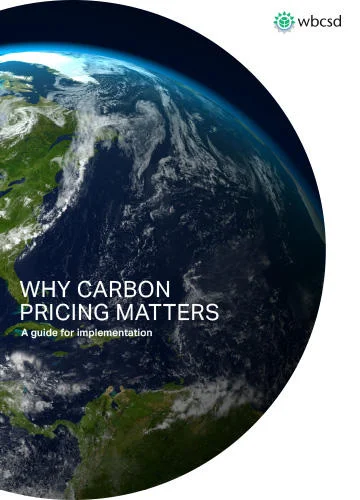Why carbon pricing matters: A guide for implementation
Published: April 16, 2018

A carbon price is a monetary cost put on the emission of carbon dioxide into the atmosphere from anthropogenic activities, such as the use of fossil fuels or process emissions. It must be implemented by governments 1 through legislation.
Some governments are already leading the way. At the same time, carbon pricing alone is insufficient for delivering a low-carbon society; other policy tools such as research, development and deployment (RD&D), support for innovative technologies are necessary to complement carbon pricing.
The idea that a carbon price is needed can be traced back to the work of Arthur Cecil Pigou, a University of Cambridge economist who published The Economics of Welfare in 1920. In this book, Pigou introduced the concept of externality and the idea that external problems could be corrected by the imposition of a charge. By “externality,” Pigou meant the indirect economic impact of an activity that happened outside the immediate system where the activity was occurring. The externality concept remains central to modern welfare economics and is at the heart of environmental economics.
